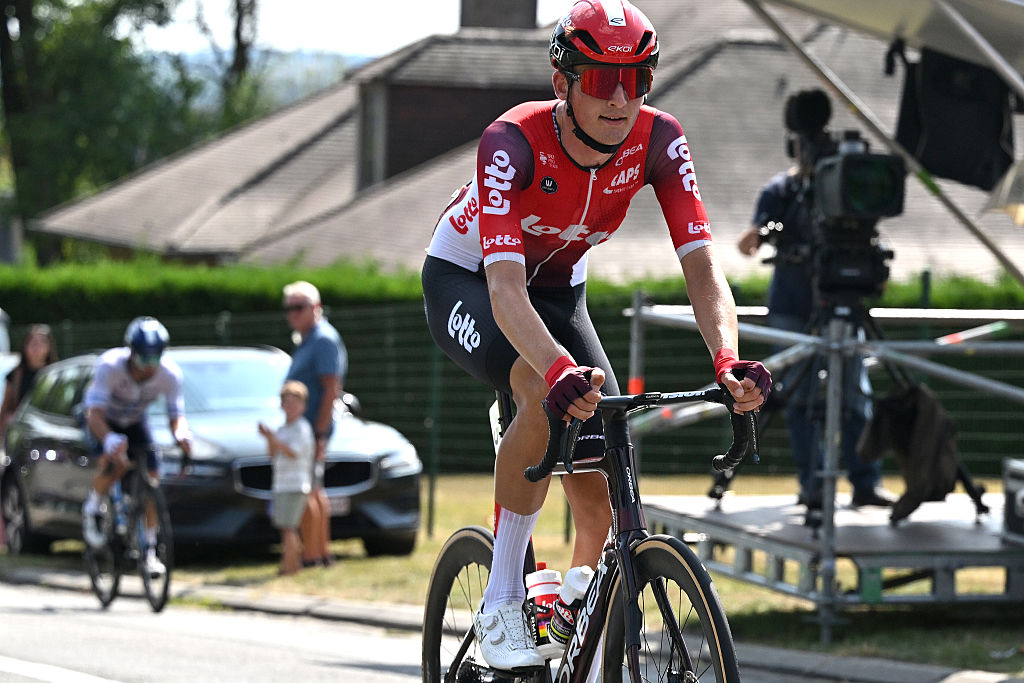Guardian angels: The domestiques who shone in the Tour de France crosswinds
Plenty of yellow jersey hopefuls have these riders to thank tonight
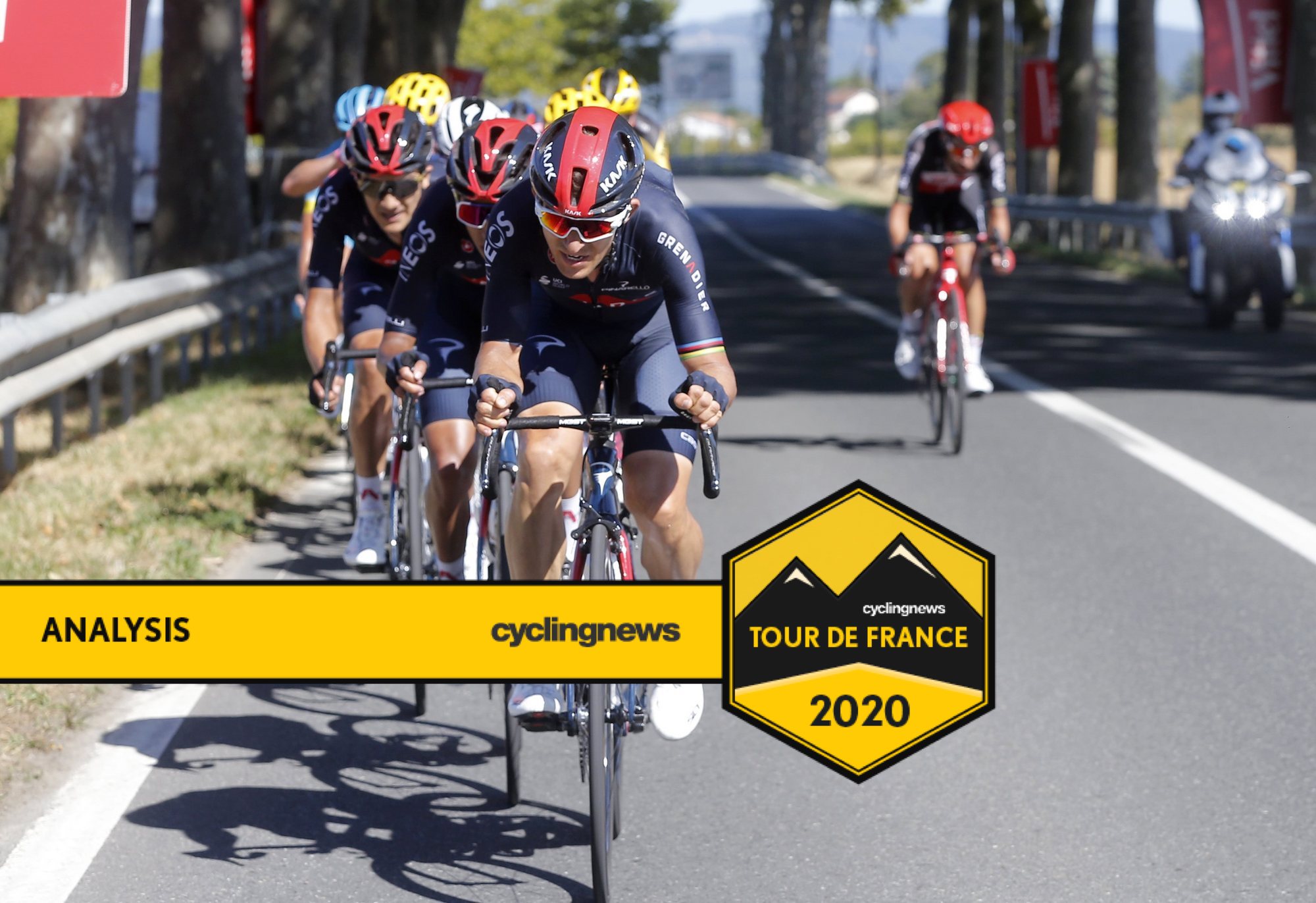
The latest race content, interviews, features, reviews and expert buying guides, direct to your inbox!
You are now subscribed
Your newsletter sign-up was successful
We were treated to crosswind action on stage 7 of the Tour de France, and with it the sight of big Classics engines rotating with lightweight yellow jersey hopefuls.
While general classification bids rely most heavily on support in the mountains, protection on the flat and in the wind is invaluable for a GC contender, as the damage can be terminal on a stage like Friday's.
Tadej Pogačar (UAE Team Emirates), Mikel Landa (Bahrain McLaren), and the Trek-Segafredo duo of Bauke Mollema and Richie Porte all suffered losses of 1:21 and significant dents to their aspirations. The race had already split in three thanks to Bora-Hansgrohe's efforts on the early uphills, but the cross-tail Autan wind that struck once the route turned past Castres and up to Lavaur was what did the damage for those GC contenders.
While there'll be plenty of soul-searching in those buses later, others will be breathing a sigh of relief, and some of them toasting a job well done. Here, we take a look at the riders who were instrumental in organising that front echelon.
Stefan Küng (Groupama-FDJ)
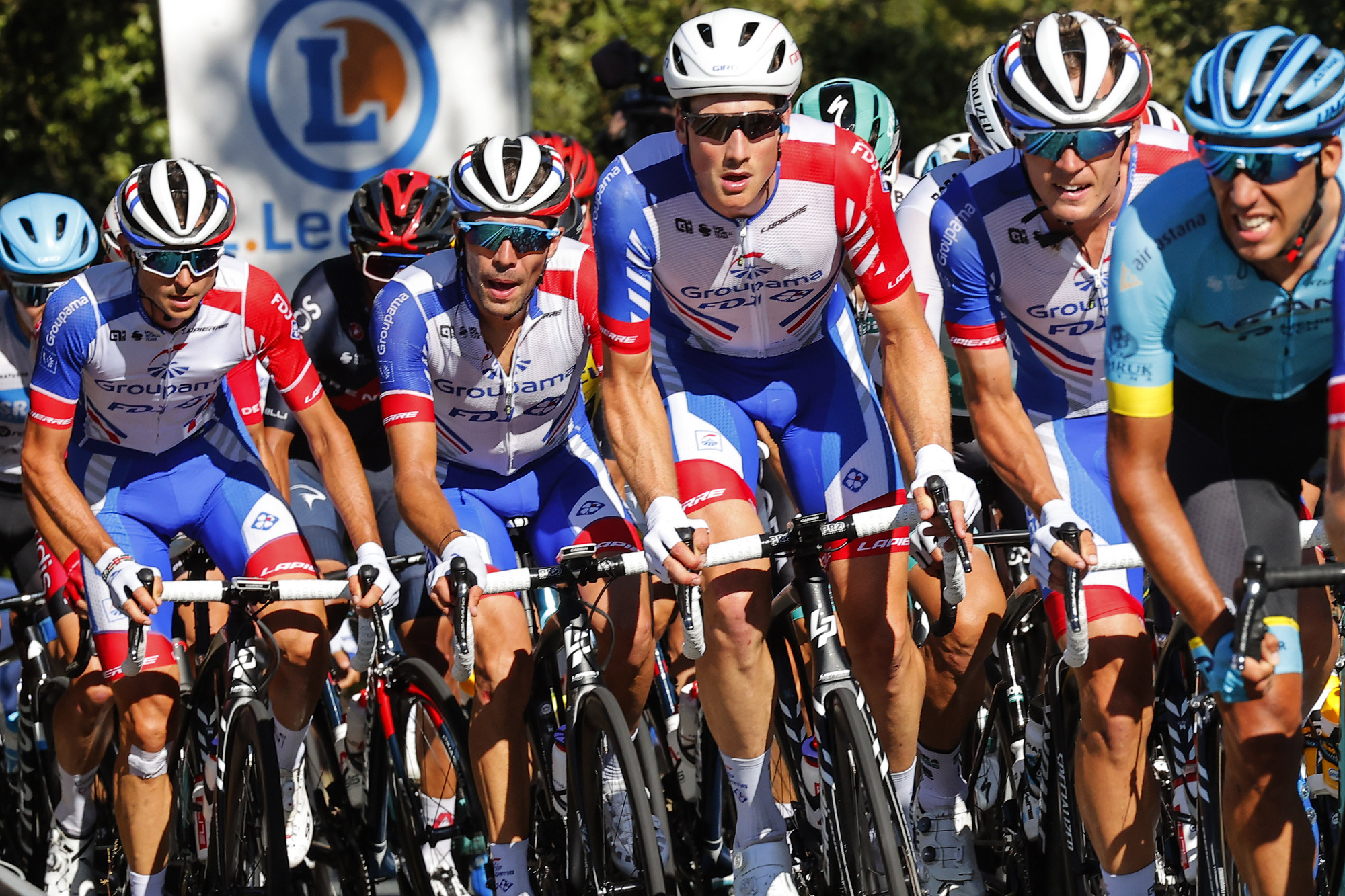
Stefan Küng described himself "the most nervous rider in the team" ahead of the stage, and that’s because he knew the magnitude of the task in hand. It wasn’t just what was coming up, but what had gone before. At last year’s Tour, in Albi, barely 40km from today’s finish town of Lavaur, there was despair on the FDJ bus as Thibaut Pinot lost 1:40 in the crosswinds. Küng and his FDJ teammates went the long way round a roundabout, lost 40 places in the bunch, which soon split, and Pinot assumed his chances of yellow were over.
Fast forward 14 months, and there was redemption for Küng and Groupama-FDJ in southern France. As the stiff Autan wind claimed its victims, Pinot was shepherded all the way to the line. Groupama-FDJ had already impressed by putting seven of their eight riders into the front peloton formed by Bora on the very first climb, and they were the dominant force in the front split in the last 30km. It wasn’t a completely smooth operation, however, as there was no FDJ rider in the top 25 riders when it did split. They lost Gaudu and Reichenbach and their key riders were only just on the right side of things at that roundabout.
It could have been worse but, that scare aside, they took control of proceedings. Küng, the two-metre Swiss rouleur, quickly moved his men to the front, whereupon Mathieu Ladagnous, Valentin Madouas, and Rudy Molard were in constant rotation. Astana and Jumbo-Visma did their share but Groupama-FDJ were instrumental in making sure the group containing Pogačar, Landa, Mollema and Porte only slipped further and further back.
The latest race content, interviews, features, reviews and expert buying guides, direct to your inbox!
Küng, Swiss national time trial champion since 2017, is in FDJ’s Tour team precisely for these kind of days, even if there’s only one of them per Tour. His importance to the cause was underlined when he was handed a new three-year contract earlier this year, and today he delivered a decent return on that investment.
Michal Kwiatkowski (Ineos Grenadiers)
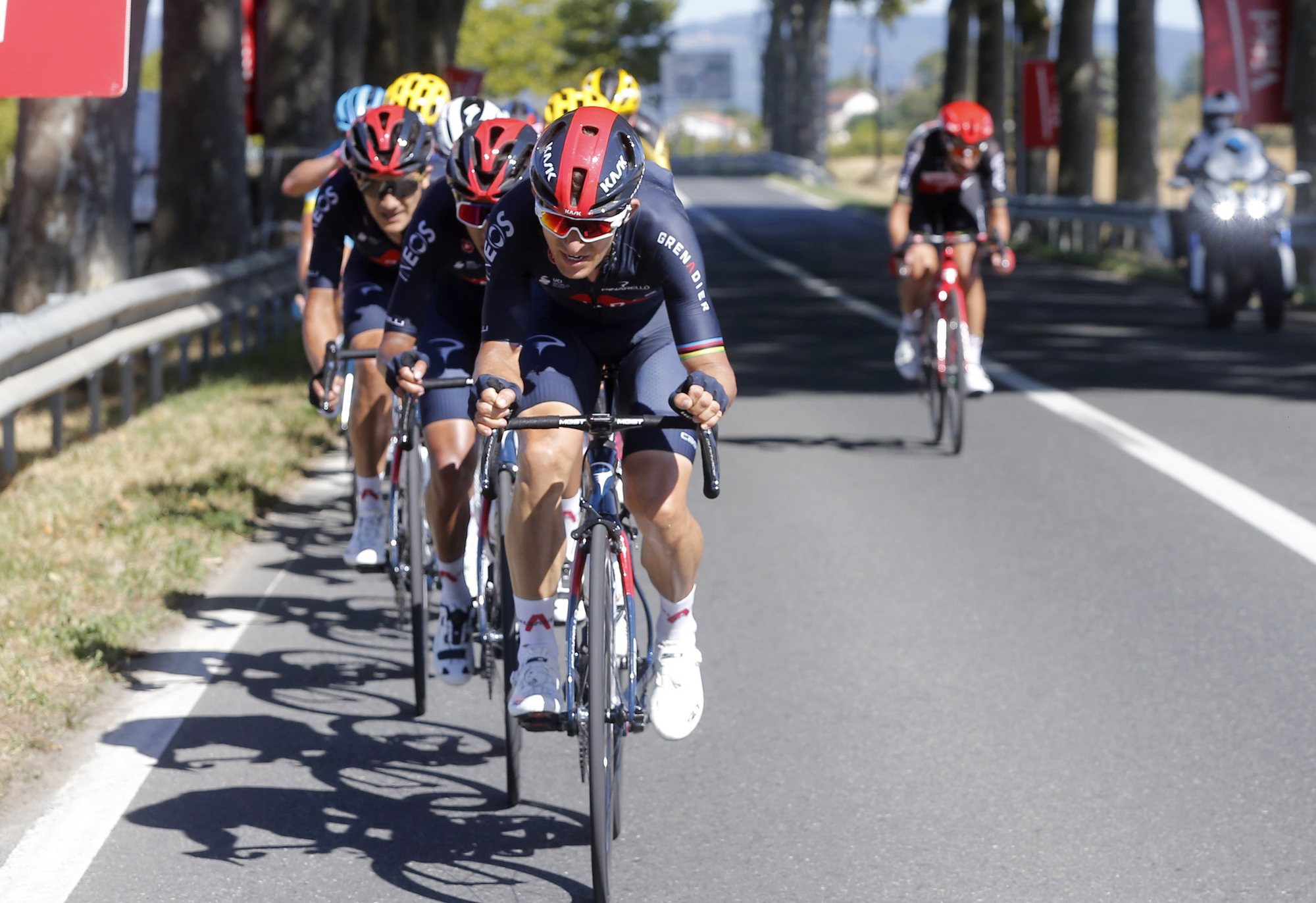
If you had to pick one Ineos rider to protect Egan Bernal on a stage like this, you’d probably pick Luke Rowe. However, the Welsh Classics specialist and road captain found himself in the second group when Bora split the race early on. In his absence, Michal Kwiatkowski took on the responsibility for the winners of seven of the past eight Tours. Some luxury.
Kwiatkowski, like Rowe, had starred in the aforementioned crosswind raid at Albi last year, and once again he was on song here. The former world champion was the one who actually made it happen. Ineos had done their homework and Kwiatkowski took to the front for the two roundabouts out of Castres, accelerating fiercely out of the second one. Bernal and Carapaz were safely in the wheel, the bunch was lined out because of the roundabout and the acceleration, and the wind did the rest.
It turned out to be a mixed day for Ineos, who actually lost Carapaz from that front split due to a puncture, which in turn saw Kwiatkowski ordered to sit in the wheels rather than drive the pace any higher. Still, the 30-year-old underlined his credentials as one of the very best domestiques in the Tour, and certainly one of the most versatile. After a poor Tour last year, he seems to be getting back to his influential best.
Wout Van Aert (Jumbo-Visma)
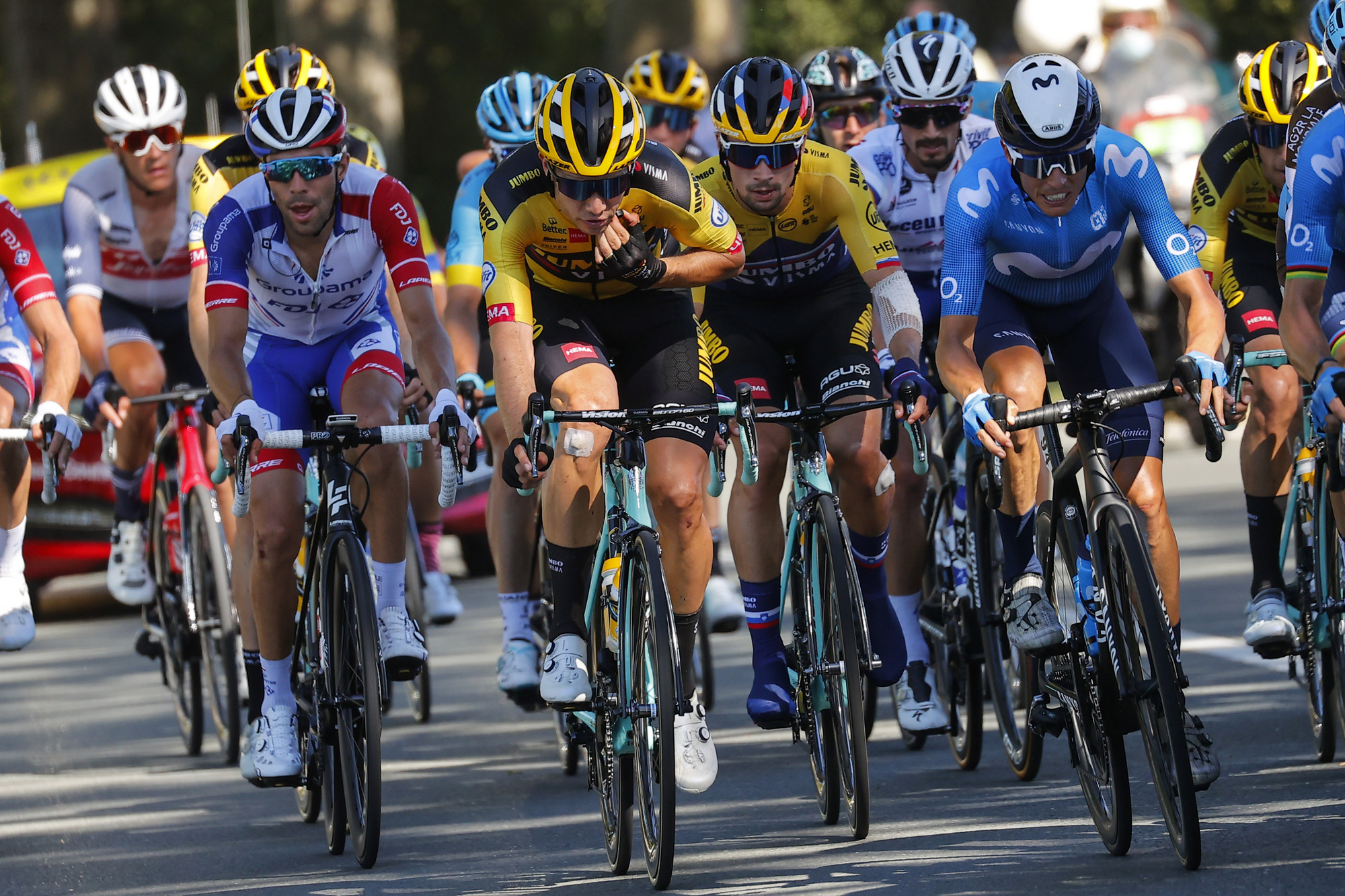
The fact that we’re talking about the stage winner as one of the stand-out domesitques of the day seems to say it all about Wout Van Aert, who is being widely anointed as, pound-for-pound, ‘the best rider in the world’. Indeed, in the wake of another pounding sprint to claim his second stage win in three days, it was easy to lose sight of the fact he’d spent the previous 167 kilometres protecting Jumbo-Visma’s leaders to a fault. As he put it himself, "I was with Primož [Roglič] the whole stage."
When it split, Van Aert was in seventh position coming out of that roundabout, and while there was an Astana rider briefly on his wheel, he soon moved out, ushered Roglič to latch onto it, and barely let him out of his slipstream thereafter. Jumbo-Visma came here with two leaders on paper, and Dumoulin hasn’t lost time so far, but the designation of Van Aert to Roglič’s side was a clear indication of where their eggs lie.
As the split was driven clear and the situation stabilised in more of a direct tailwind, it was actually Jumbo’s climbers, Sepp Kuss and George Bennett who played a big role in maintaining the advantage. That once again underlined the Dutch squad’s strength, even if they might have expected rouleurs Tony Martin and Amund Grondahl Jansen not to have been dropped early in the stage.
Still, Van Aert was key for Roglič today, and that would have earned him a pat on the back from most buses. But no, the rider who also whittled down the peloton on the first-category climb to Orcieres-Merlette, went on to brush two established sprinters aside in Lavaur to give Jumbo three wins from seven stages. Remarkable.
Alberto Bettiol (EF Pro Cycling)
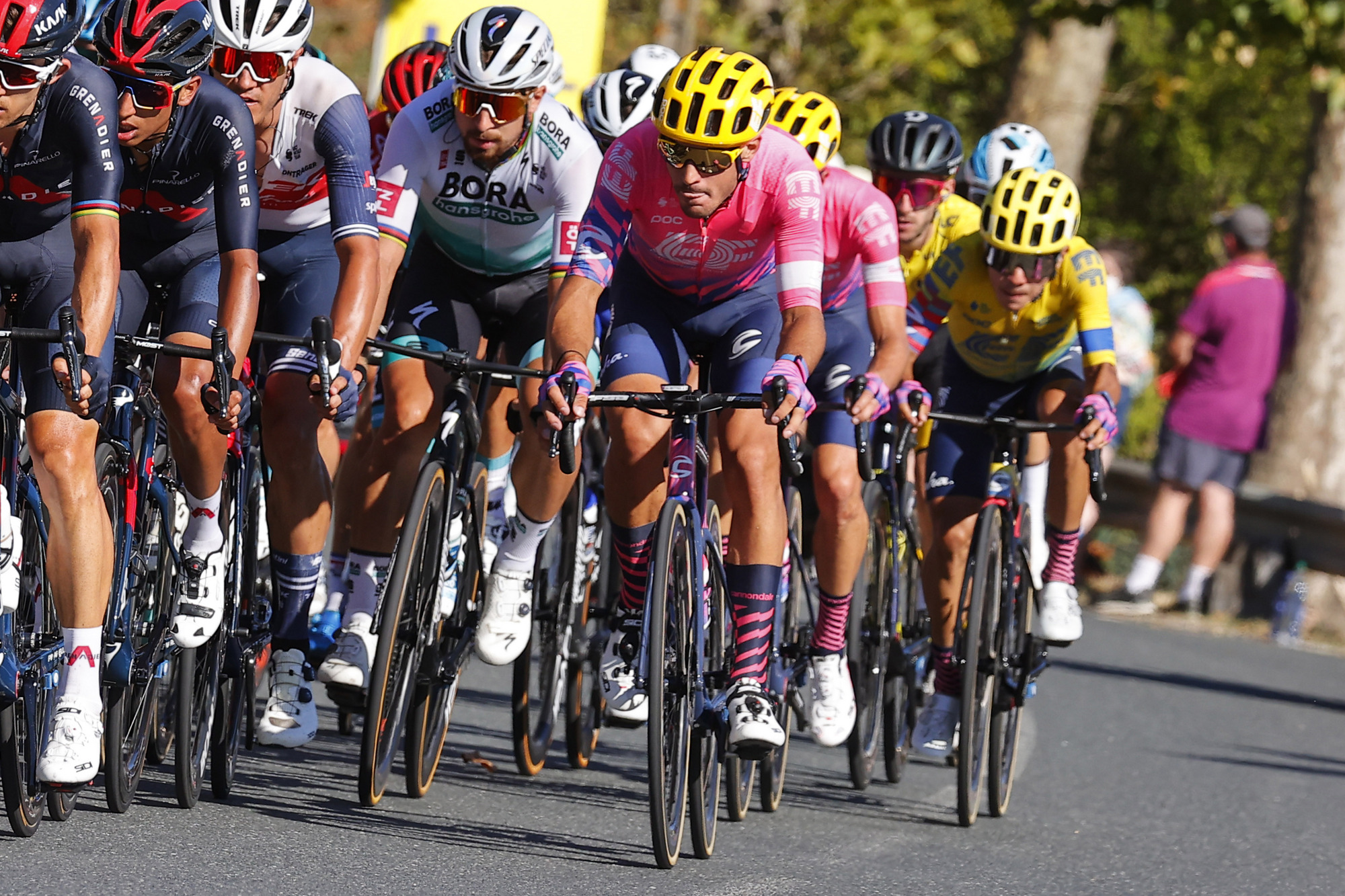
With their bright pink jerseys and yellow helmets, the EF riders stood out in the front echelon, and they proved themselves worthy of those helmets, which indicate their lead in the teams classification. The day started out badly for them, as Daniel Martínez was caught out by the Bora charge. The Dauphiné winner was already 4:25 down after a crash on stage 2 but that signalled the end of any vague hopes of a decent GC result.
EF pressed on with Rigoberto Urán, who is riding an understated but assured race in 10th overall (is it too early to call shades of 2017?) and debutant Sergio Higuita, the diminutive Colombian who already showed at Paris-Nice that he can cut it in the crosswinds.
Their bodyguard? The Tour of Flanders champion, Alberto Bettiol. He’d clearly done his homework, too, as he was in fifth place coming out of that roundabout, right behind the Ineos trio and Alaphilippe. Tucked tightly onto his rear wheel was Urán, with Higuita only a few places further back. Bettiol was never far from the front after that, and Uran never far from his wheel.
Luis León Sánchez (Astana)
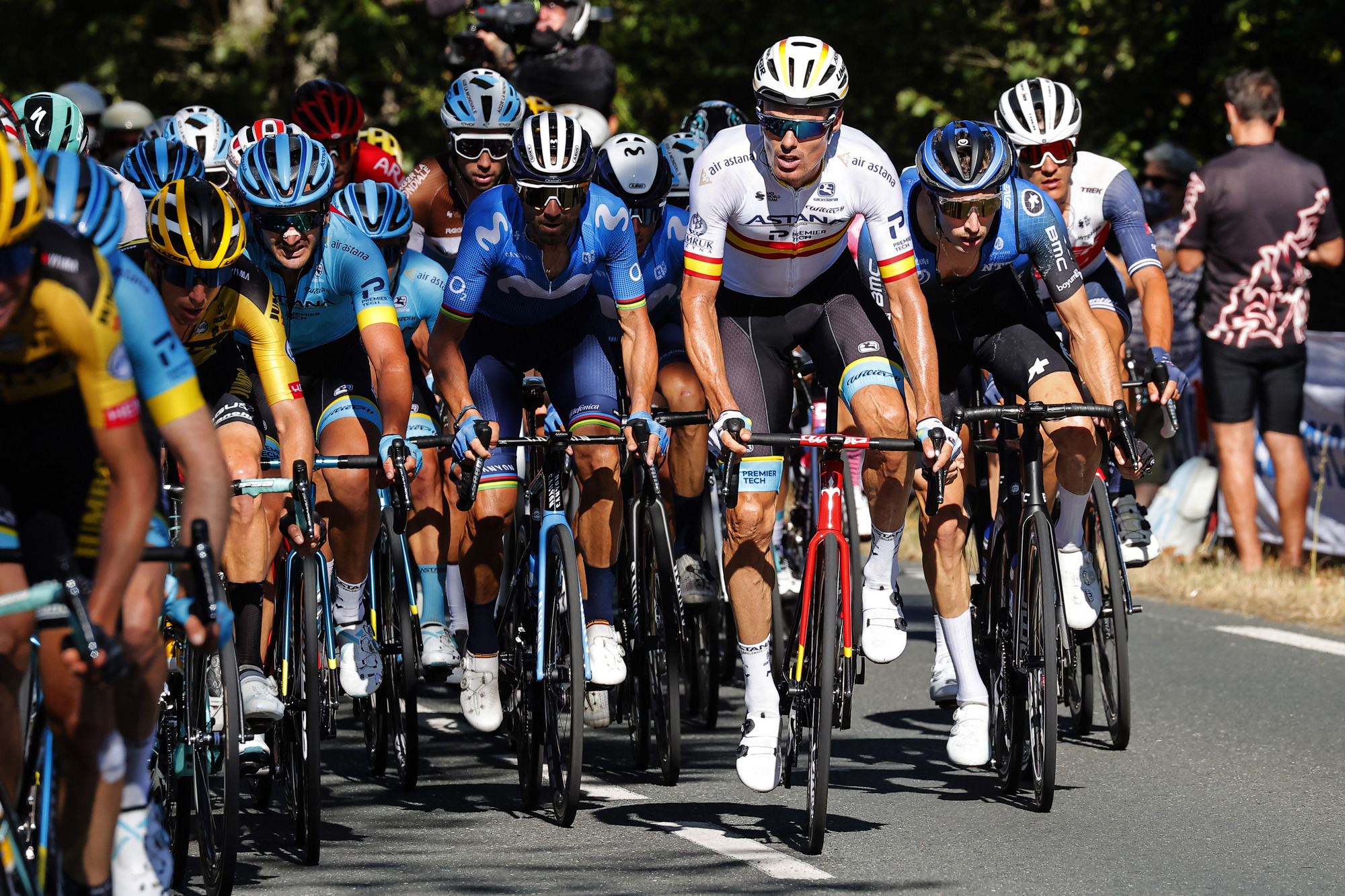
It’s hard to know which Astana rider to pick, given theirs was a proper collective effort, and given Miguel Angel López rode so well it was almost as if he didn’t need close protection. But pick an Astana rider we must, because they placed no fewer than seven riders into that front split, taking up a sixth of the space in the group.
Most of them were alert and up towards the front of the bunch at the key moment, but, strangely, Sánchez wasn’t. But while he didn’t play much of a role in the creation of the move, he became López’s guiding light once it was established. Omar Fraile, Hugo Houle, Alexey Lutsenko, and the Izaguirres all smashed out huge turns on the front, all the way to Lavaur, but Sánchez always remained a few places back, and López remained glued to his wheel.
The lone rangers
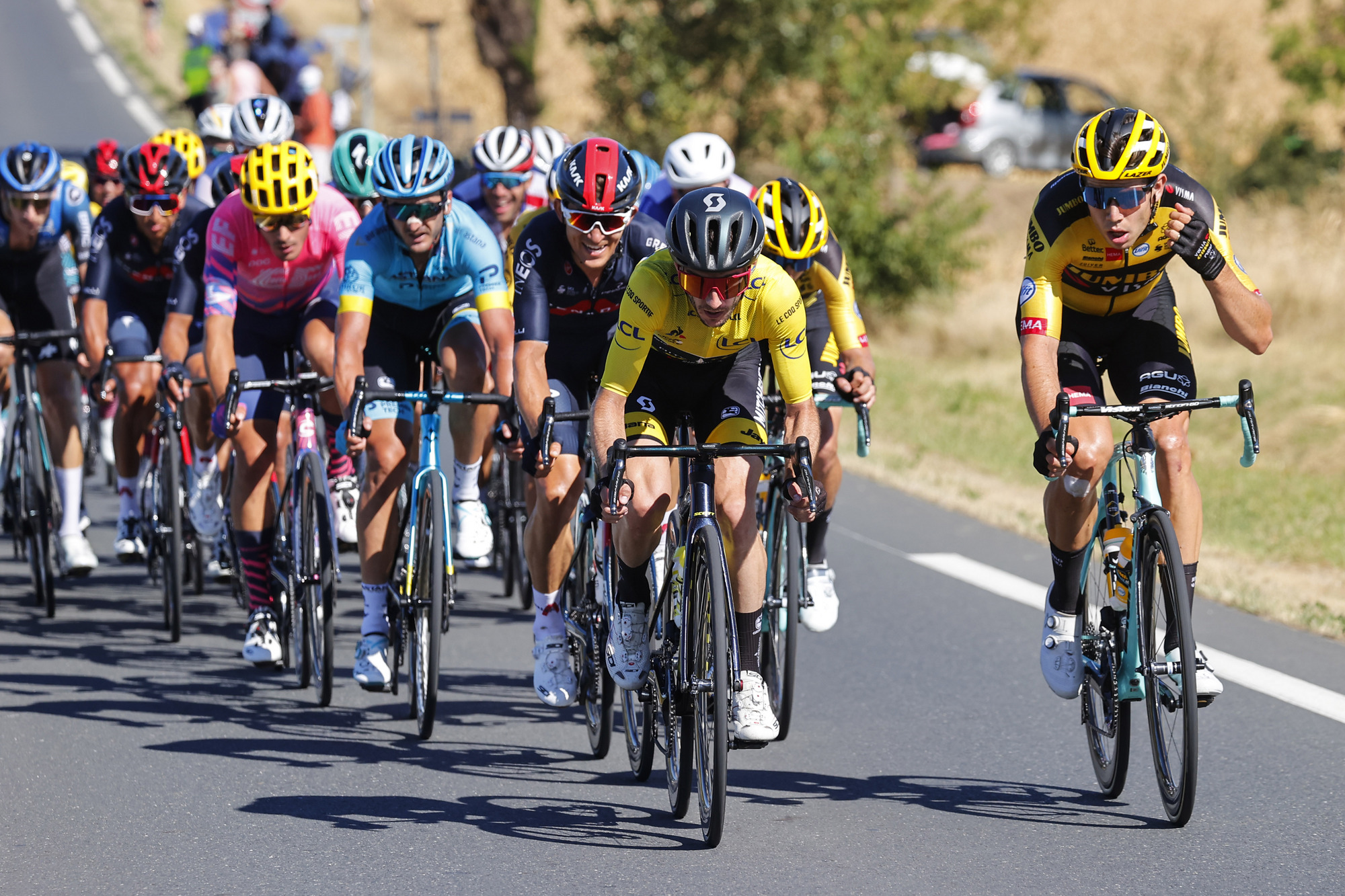
It’s worth giving credit to those riders who couldn’t rely on the kind of support detailed above. Yellow jersey Adam Yates (Mitchelton-Scott) and his predecessor Julian Alaphilippe (Deceuninck-QuickStep) both came through to the front of the echelon in its early stages, Alaphilippe putting in a particularly sharp acceleration. The extra effort will have been worth it simply to stay up front and out of trouble.
Alaphilippe’s Deceuninck-QuickStep team are usually masters of crosswinds but this time he was left to fend for himself as the rest of the team spent the day working for sprinter Sam Bennett in what turned out to be something of a lost cause. Yates, meanwhile, had his biggest domestiques at the back of the race, and was left to fight his own battles when sprinter Luka Mezgec and Esteban Chaves, who’d had a strong start on GC, missed the boat.
Nairo Quintana (Arkéa-Samsic) ensured no repeat of his 2015 nightmares. He'd been well-shepherded by Connor Swift and Kévin Ledanois earlier in the day but it was actually Warren Barguil he combined with to make the front split. Meanwhile Guillaume Martin (Cofidis) had some company in Christophe Laporte and Pierre-Luc-Périchon but looked extremely assured - and ever-more a top-five contender - as he got his hands dirty himself.
Who didn’t cover themselves in glory?

Tadej Pogačar put a brave face on his losses but there’ll be disappointment in the UAE Team Emirates camp tonight. They had now fewer than six riders in the front peloton when it split and, while Fabio Aru, Jan Polanc and Davide Formolo aren’t specifically designed for those conditions, the rouleurs, Marco Marcato and Vegard Stake Laengen are. They were the biggest force in the chase group but the damage had already been done in that split second, and they were subsequently put to the sword by the rotating teams up front.
Likewise, Bahrain McLaren will be reeling after Landa lost time in the crosswinds for a second year in a row. They were only just picking themselves up from a bizarre crash that seemed to only involve Landa, Pello Bilbao and Matej Mohoric, and found themselves still well down the bunch when it split. Landa didn’t speak to reporters after the stage and will be left wondering why something always goes wrong for him.
Trek-Segafredo suffered a blow to not just one but both of their GC leaders, as Mollema was caught in the second split and Porte in the third group, before they came together. Toms Skujins was right at the back of the bunch when it split, but why weren’t Mollema and Porte up with Classics riders Jasper Stuyven and Edward Theuns, who both were on the right side of it?
CCC Team didn’t have any domestiques, as such, but Matteo Trentin and Greg Van Avermaet will be furious with themselves for missing that split. Finally, Bora-Hansgrohe, despite keeping Buchmann up there, lost four riders in the split, including Daniel Oss, who might have been useful in finale for a badly-positioned Sagan. Still, after their outstanding work in making a race of this stage, they can hardly be criticised.
Patrick is a freelance sports writer and editor. He’s an NCTJ-accredited journalist with a bachelor’s degree in modern languages (French and Spanish). Patrick worked full-time at Cyclingnews for eight years between 2015 and 2023, latterly as Deputy Editor.

